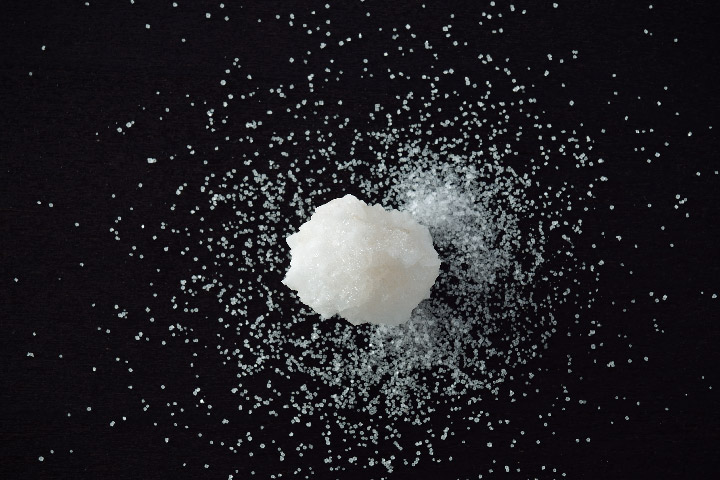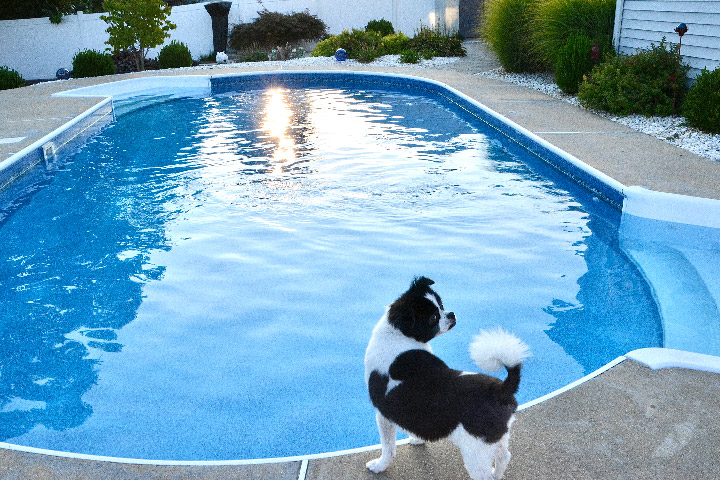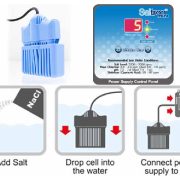
A Comprehensive Guide to Swimming Pool Salt
Understanding the Importance, Usage, and Optimal Range of Salt in Saltwater Pools
Introduction
Saltwater pools have gained popularity among pool owners due to their numerous benefits, such as reduced chemical usage, softer water, and less skin and eye irritation. Salt is a crucial component in saltwater pools, as it facilitates the production of chlorine to sanitize the pool water. In this article, we’ll discuss why salt is used in swimming pools, its importance, the optimal range, and other essential tips for maintaining a healthy saltwater pool.
- Why is Salt Used in Swimming Pools?
Salt is used in saltwater pools to create chlorine through a process called electrolysis. The saltwater pool system consists of a chlorine generator, also known as a salt chlorine generator or salt cell, which uses electricity to convert salt (sodium chloride) into chlorine (hypochlorous acid) and sodium hypochlorite. This chlorine production process helps keep the pool water clean and safe for swimming.
- Importance of Salt in Saltwater Pools
Salt plays a crucial role in maintaining the cleanliness and safety of saltwater pools. Some key benefits of using salt in swimming pools include:
a) Reduced Chemical Usage: Saltwater pools require less added chlorine, as the chlorine generator continually produces chlorine from the salt. This reduces the need for frequent manual chlorine application.
b) Softer Water: Saltwater pools are known for their soft, silky water, which can be gentler on skin, hair, and eyes.
c) Less Chlorine Odor: Saltwater pools have a lower concentration of combined chlorine, which is responsible for the strong chlorine smell often associated with traditional chlorinated pools.
d) Eco-friendly: Saltwater pools require fewer chemicals, making them a more environmentally friendly option.
- Optimal Salt Range for Saltwater Pools
The optimal salt level in a saltwater pool typically ranges from 2,500 to 3,500 parts per million (ppm). Maintaining the correct salt level is essential for the efficient operation of the chlorine generator and overall pool health. It is vital to follow the manufacturer’s recommendations for your specific salt chlorine generator.
- Tips for Maintaining Salt Levels in Your Saltwater Pool
a) Test Regularly: Regularly test the salt level in your pool using a salt test kit or digital salt meter to ensure it stays within the optimal range.
b) Add Salt as Needed: If your pool’s salt level falls below the recommended range, add the appropriate amount of pool-grade salt to bring it back to the proper level.
c) Monitor Chlorine Production: Keep an eye on your chlorine generator’s performance and make adjustments to the system settings as needed to maintain the appropriate chlorine levels.
d) Check for Salt Cell Buildup: Inspect the salt cell for calcium deposits or scale buildup, as this can impede the electrolysis process. Clean the cell according to the manufacturer’s instructions to ensure optimal performance.
e) Maintain Proper Water Balance: In addition to monitoring salt levels, it’s essential to maintain the correct water balance in your pool, including pH, total alkalinity, and calcium hardness. This will help prevent issues such as scaling, corrosion, and algae growth.
Conclusion
Salt is a vital component in saltwater pools, providing an efficient and eco-friendly way to sanitize the pool water. Understanding the importance of salt, its usage, and the optimal salt range will help you maintain a clean, safe, and enjoyable swimming environment. By regularly monitoring and adjusting your pool’s salt levels and water balance, you can enjoy the benefits of a saltwater pool for years to come.




